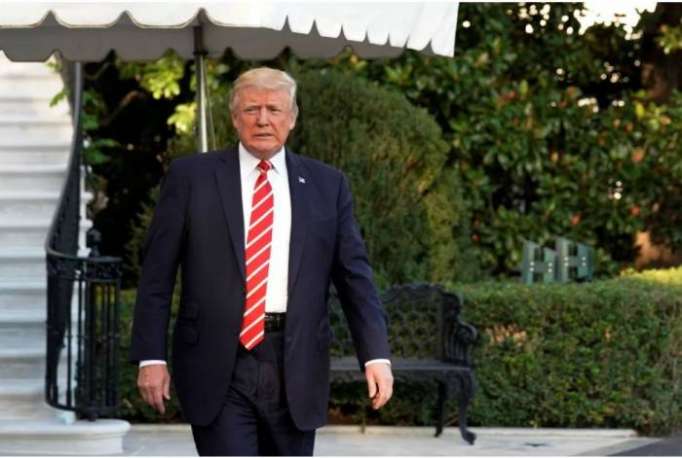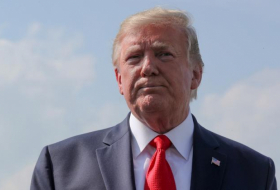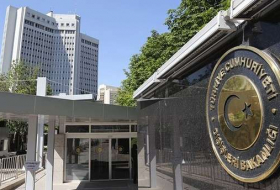"I want to get out. I want to bring our troops back home. I want to start rebuilding our nation," Trump said during a press conference with leaders of the Baltic countries Estonia, Latvia, and Lithuania. "It's time. We were successful against ISIS. We'll be successful against anybody militarily, but sometimes it's time to come back home — and we're thinking about that very seriously."
The president said getting rid of ISIS has been the United States' primary goal in Syria and that "we've almost completed that task."
He added that the U.S. will be making a decision “very quickly in coordination with others in the area as to what we'll do” and suggested that if others, like Saudi Arabia, want the U.S. to maintain a presence, perhaps they should pay for it.
"Saudi Arabia is very interested in our decision and I said, well, you know, you want us to stay, maybe you will have to pay but a lot of people, you know, we do a lot of things in this country. We do them for, we do them for a lot of reasons. But it is very costly for our country and it helps other countries a hell of a lot more than it helps us. So we're going to be making a decision, we've had a tremendous military success,” Trump said.
Saudi Arabia's young Crown Prince, who is wrapping up a three-week tour of the U.S, urged the U.S. to keep troops in Syria just last week.
The heir to the throne, Mohammed bin Salman told TIME Magazine on Friday, "We believe American troops should stay for at least the mid-term, if not the long-term," warning of how withdrawal would strengthen Iran.
The president's remarks come after he suggested last week in surprise comments that the U.S. would soon pull out of Syria.
Trump first floated the idea of "coming out of Syria, like, very soon" Thursday during a speech on infrastructure in Ohio.
The president also seemed to signal a long-term commitment to the fight against ISIS, saying in his opening remarks of Tuesday's press conference, “we will not rest until ISIS is gone."
Trump has previously been deeply critical of his predecessor for forecasting what the U.S. would do militarily in Iraq and Afghanistan, accusing President Obama of revealing the strategy to the enemy by announcing the withdrawal of American troops from Iraq and Afghanistan.
As a candidate, Trump vowed that he would never do something like that.
While President Trump was voicing his support for a U.S. withdrawal from Syria, three top U.S. officials who lead American efforts in the country were reinforcing the administration's commitment to its efforts there.
Less than a mile from Trump and the White House, a top general, diplomat, and development official laid out a strategy going forward in complete contrast to Trump's calls to "get out."
But at the same time, the top U.S. general in the Middle East, Gen. Joseph Votel talked about the great work ahead.
"The hard part, I think, is in front of us," Votel, the U.S. Central Command chief, told an audience at the U.S. Institute of Peace, "and that is stabilizing these areas, consolidating our gains, getting people back into their homes, addressing the long-term issues of reconstruction and other things that will have to be done."
Votel was joined by the U.S. Agency for International Development Administrator Mark Green and the Special Envoy to the Global Coalition to Defeat ISIS Brett McGurk — and all three discussed the importance of their agencies' work to ensure the defeat of ISIS as a key U.S. national security concern.
None of them discussed the idea of drawing down the U.S. presence in Syria.
"We're in Syria to fight ISIS. That is our mission, and that mission isn't over, and we're going to complete that mission," McGurk added.
A top U.S. diplomat, he also declined to confirm whether Trump had suspended $200 million in U.S. aid to Syria, saying only that it was under a "regular review process" to ensure it's spent as effectively as possible. A State Department official confirmed to ABC News Friday that the aid had been suspended for the time being, but McGurk insisted the review has not hampered the diplomats and development officials' work in the field.
The U.S. has provided nearly $7.7 billion on the Syrian crisis since its start, according to the State Department, including humanitarian assistance to refugees in neighboring countries. As a candidate and in office, Trump repeatedly blasted the amount the U.S. has spent in the Middle East.
"We will have as of three months ago, $7 trillion dollars in the Middle East over the last 17 years. We get nothing, nothing out of it, nothing," Trump said Tuesday.
In contrast, McGurk tried to downplay the total amount the U.S. has spent in Syria: "We have only spent a total of about $100 million [on "stabilization" efforts], and half of that is on counter IEDs, and the coalition has contributed about the same sum, and that is going up as we speak," he said, touting the very kind of burden sharing that Trump is calling for.















































